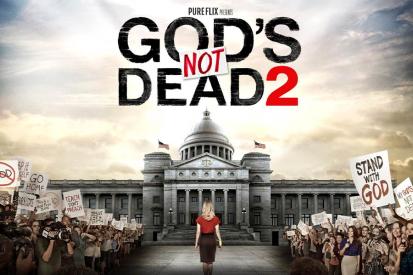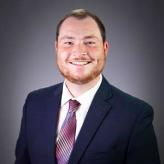God’s Not Dead 2: The Legal Cases That Inspired the Film


Religious freedom is protected by the U.S. Constitution, but not all government officials act like it. While the First Amendment protects the rights of all Americans to live out their faith, those rights need to be defended.
The movie God’s Not Dead 2 features one such story of government officials violating the Constitution. In the film, high school teacher Grace Wesley must stand for her faith after she faces threats and intense backlash for answering a student’s question about Jesus. The plot may sound far-fetched, but similar stories have already played out across the country.
At Alliance Defending Freedom, we are dedicated to defending everyone’s right to live and speak the truth, and our pursuit of freedom helped to inspire the story of God’s Not Dead 2. Below are some of the cases that inspired the film.
- While teaching a course called “Introduction to Roman Catholicism” at the University of Illinois, Urbana-Champaign, Professor Kenneth Howell spoke to his students about Catholic teaching on homosexuality. The university proceeded to fire him without discussion. ADF attorneys sent a demand letter to the university, and it offered Dr. Howell his job back. Later, the university admitted to violating Dr. Howell’s rights when it fired him.
- ADF attorneys represented Professor June Sheldon in her lawsuit against San Jose City College. She answered a student’s in-class question about heredity and homosexual behavior by citing a class textbook, but the college fired her anyway. ADF attorneys eventually reached a settlement with the college in which it agreed to remove Sheldon’s termination from her record and pay her $100,000 for her lost work.
- Scott Savage, a librarian at Ohio State University-Mansfield, received complaints from three of his fellow professors after he recommended some conservative books for the freshman reading list. The university launched an investigation, but it dropped all charges against Scott after ADF sent a demand letter.
- In Lopez v. Candaele, ADF represented a Los Angeles City College student named Jonathan Lopez who was targeted by a professor for sharing his belief that marriage is between one man and one woman. After the professor threatened to expel Jonathan, ADF attorneys filed a lawsuit and won a judgment declaring that the professor had violated Jonathan’s rights.
- Officials at the Georgia Institute of Technology prevented students Orit Sklar and Ruth Malhotra from holding conservative and religious events, and they restricted free speech to very small areas of campus. After lengthy litigation, the university changed its policies in a settlement.
- A professor at Missouri State University tried to force his students to sign a letter to the Missouri state legislature in favor of same-sex adoption. Emily Brooker asked for an alternate assignment because the original one would force her to violate her beliefs, but the professor charged her with a level-three grievance—the highest form of punishment in the School of Social Work at Missouri State. ADF attorneys filed a lawsuit, and the university agreed to a settlement in which it removed the charge from Emily’s record and offered to pay for Emily’s master’s degree. The university later launched an investigation of the social work department.
- Southern Illinois University student Christine Mize wrote a paper detailing a therapy program for women dealing with post-abortion syndrome, but her professor refused to grade it because Christine said her initial project contained religious material. After ADF attorneys sent a demand letter, Christine’s paper was graded.
- In Solid Rock Christian Club v. Wyatt, ADF attorneys filed a lawsuit against Snow College because it denied religious groups the same benefits as every other group on campus. In response, the college changed its policies to ensure religious groups were not treated worse than all other groups.
- After the federal government tried to force religious colleges to violate their beliefs by providing pills and devices that could facilitate abortion to their employees and students, ADF attorneys filed suit on behalf of Geneva College. The case went all the way to the U.S. Supreme Court, which directed lower courts to find a resolution that would accommodate the college’s religious exercise. After the Trump administration crafted an appropriately broad religious exemption, a federal district court issued a ruling permanently protecting Geneva College’s religious freedom.
- In B.H. v. Garcia, fifth-grader Brian Hickman wanted to dance to a Christian song at his school’s talent show. After Brian auditioned, the school said he had to pick a different song because the one he chose said “Jesus” too often. ADF attorneys filed a lawsuit, and the school quickly reversed course.
These are just a few of the many cases that inspired God’s Not Dead 2, and ADF attorneys continue to represent students and educators from schools around the country who have had their religious freedom threatened.
The First Amendment protects religious freedom for all Americans, and students and educators don’t lose those rights when they cross the threshold of their schools. When government officials violate the First Amendment, we must be willing to take a stand. Scenarios like the one depicted in God’s Not Dead 2 are playing out across the country, but ADF remains firm in our commitment to religious freedom.

